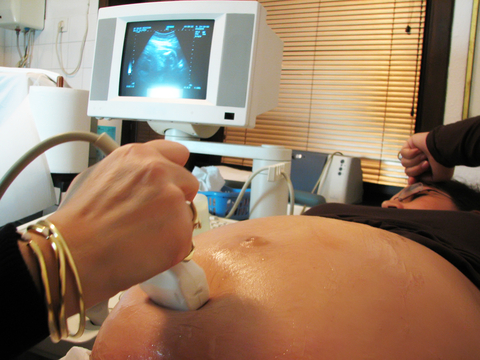Study finds pregnant women with higher BMIs feel stigmatised

Joint research by Cardiff University and the British Pregnancy Advisory Service (BPAS) found women with higher BMIs felt stigmatised by risk messaging in maternity care.
The BBC reports the Wrisk Project, which surveyed more than seven thousand women, looked at how risk is communicated in pregnancy following concerns it didn’t always “reflect the evidence base”.
A mum of four said she felt “fat shamed” at a pregnancy scan and during follow up appointments.
Alexandra Dodds said her weight was raised at every appointment, and circled with a pen so vigorously in her notes that she wanted to lose them.
She said “It was just kind of jokes, like ‘hope you’ve stopped the Christmas snacks’, or ‘make sure you’ve thrown the box of chocolates away’.”
The twenty seven year old from Newport described already being upset at her twelve week scan as she was alone due to Covid-19 restrictions and away from family, who were in Australia, when the midwife broached her weight.
She said “I didn’t feel like it was said in a spiteful way to try to upset me, it was like banter, but I don’t feel like you can banter about that.”
She complained but felt that her weight dominated her entire antenatal care.
She said “I didn’t feel this was a person that I could talk to openly support me, so I just left not knowing really what I could do. I was really, really sad.”
Baby Brianna was born healthy at home before a midwife could arrive in July last year.
Alexandra said she only felt able to speak out about what she wanted during her pregnancy and labour because of three previous pregnancies.
She added “If I feel any level of shame, that’s just a clear indication that I have to talk about it, because it means I’m not the only person and other people will understand.”
Clare Murphy, director of BPAS, said the work showed they hadn’t got it right.
She said “Pregnant women are often infantilized, and it feels like sometimes decisions are made about them, for them.”
The data showed many felt they received a lot of information on some topics, such as alcohol and smoking, but wanted more advice on subjects such as looking after their mental health.
The final results, due to be published and peer reviewed early next year, suggest women want a balance between a “better-safe-than-sorry” approach and evidence based information.
Clare Murphy said the slow uptake of the Covid-19 vaccine among pregnant women had been “an inevitable consequence” of a culture in which women were urged to avoid potential risk.
She said “The fact we now see pregnant women dying in hospital of Covid because they haven’t had the vaccine is an absolutely tragic and avoidable consequence of this narrative.”
Understanding risk is the day job for health and safety consultant Stephanie Powell, but she said she hadn’t been given enough information to do that during her pregnancy.
She said “I was thinking to myself, why am I not hearing about this from my midwife?”
The mum of one from Abercynon would have liked more information from healthcare professionals so she didn’t have to search online instead.
She added “There’s a balance between managing anxiety and stress, but I still think there’s a way of putting that information across.”
The thirty four year old said she heard of possible risks from other mums and would like better access to information for people in future.
Dr Rhiannon Phillips, from Cardiff Metropolitan University, said not enough research or clinical trials included pregnant women.
She said “We are quite naturally and understandably correctly quite risk-averse for that population but we do need evidence so we need to start collecting that so that we can inform people’s choices.”
The health psychologist’s work looks at women with pre-existing, long-term medical conditions who are considering having a baby, or who are already pregnant.
She said “People are consistently telling us they’re not getting the information they need to make proper decisions about how to manage other health conditions during pregnancy and to really get the best outcomes for themselves and for their children themselves.”
She said, while there were lots of examples of great care, there were also cases of women stopping vital medication to get pregnant when they would be better off continuing with it.
Helen Rogers, the Royal College of Midwives Director for Wales, said good communication between health professionals and patients was vital.
She said “Women should feel comfortable with their midwife and able to ask any and all questions and expect to receive the right answers.”
She added the “use of appropriate language is at the heart of this relationship and is embedded in the NMC (Nursing and Midwifery Council) Code that all midwives must adhere to.”
This article was edited on January 5th 2022 so that the headline more accurately reflected the findings of the study.








